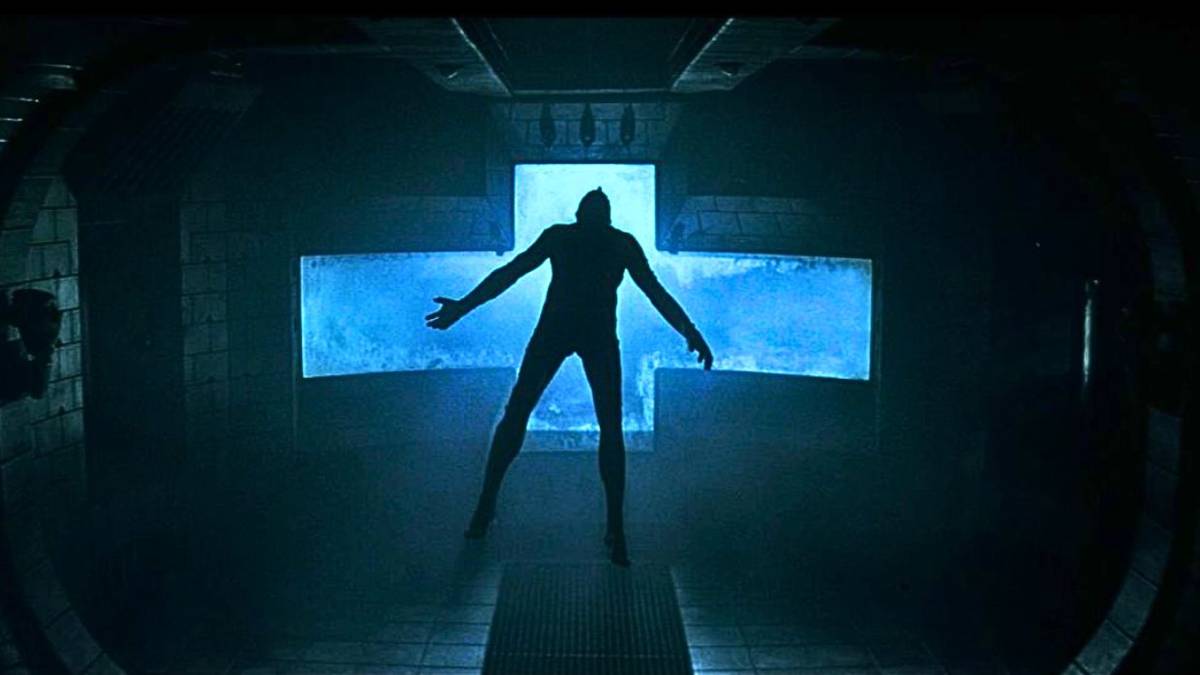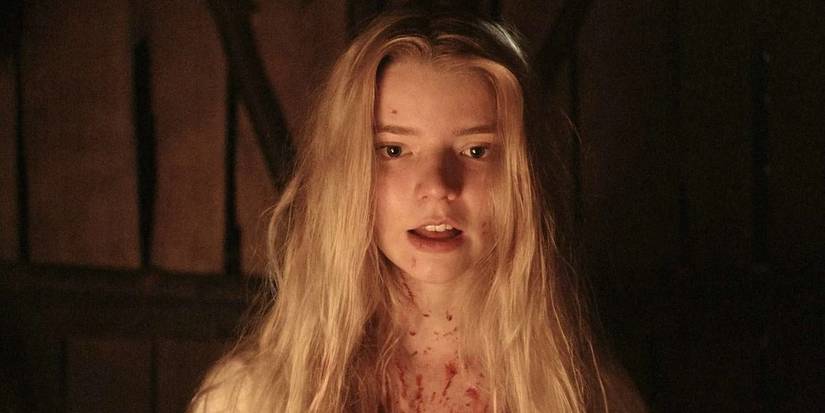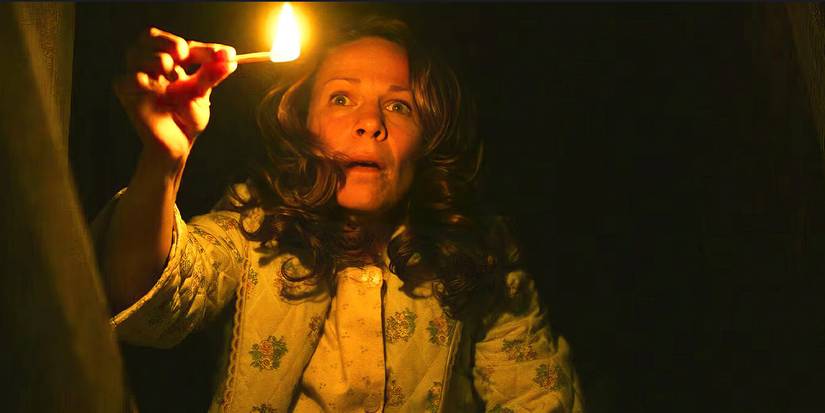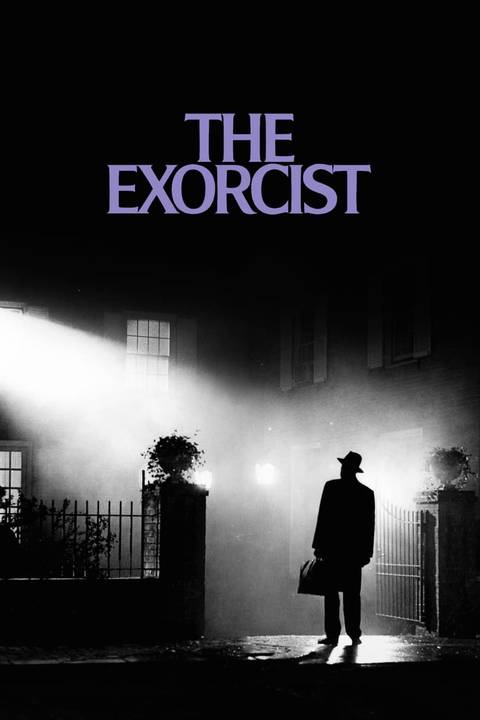
10 Greatest Spiritual Horror Movies of All Time, Ranked
Horror has always been a reflection of what humans fear most, including death, isolation, the unknown. Spiritual horror reaches even deeper. These movies terrify not just the body, but the soul. Unlike slasher movies or creature features, spiritual horror asks existential questions. At their core, spiritual horror movies are designed to do more than scare viewers. As the name implies, they are meant to unsettle the spirit.
The greatest spiritual horror movies transform theology and philosophy into living nightmares. They explore the fragile border between what’s sacred and what’s evil. Their terror comes not from jump scares, but from the slow realization that faith, whether divine or heretical, demands something absolute in return. The spiritual horror movies that stand the test of time tell deeply human stories about people wrestling with powers greater than themselves.
10
‘Event Horizon’ (1997)
Event Horizon is a sci-fi horror drama set in 2047. The story follows a rescue crew sent to investigate the reappearance of the Event Horizon, a spaceship that vanished years earlier during an experimental faster-than-light voyage. The ship’s gravity drive was designed to create an artificial black hole to bridge two points in space. Instead, it opened a gateway to a hellish dimension of pure chaos and evil.
Event Horizon stands out as one of the greatest spiritual horror movies because it fuses cosmic science fiction with theological terror. The movie doesn’t just depict a literal Hell but suggests that evil and damnation are woven into the fabric of the universe itself. Each character’s terrifying hallucinations are tailor-made to exploit their deepest guilt and shame, which adds to the story’s horror.
9
‘Incantation’ (2022)
Incantation is a Taiwanese found footage movie inspired by real-life events involving a family’s supposed curse. The story follows Li Ronan (Tsai Hsuan-yen), a woman who six years earlier broke a sacred taboo while documenting a rural cult’s ritual, resulting in the deaths of her companions and a supernatural curse placed upon her. She then tries to protect her young daughter, Dodo (Huang Sin-ting), from the same dark force as she records her attempts to lift the curse.
Incantation earns its place among the greatest spiritual horror movies ever because it uses belief, faith, and superstition and turns them into instruments of existential terror. The more the characters acknowledge and participate in the ritual, the stronger the curse becomes. This creates a horrifying paradox in that the same reverence and faith that normally grant protection instead become what dooms them all.
8
‘The Witch’ (2015)
The Witch is a slow-burning psychological horror movie set in 1630s New England. It follows a devout Puritan family exiled from their settlement who establish a farm on the edge of a dark, foreboding forest. When their infant son mysteriously vanishes and their crops begin to fail, paranoia and religious hysteria consume the family. The eldest daughter, Thomasin (Anya Taylor-Joy), becomes the scapegoat for their misfortunes, accused of witchcraft as the family’s faith fractures under isolation and fear.
The Witch is one of the greatest spiritual horror movies ever made because it captures the terror of faith itself not as a comfort, but as a force that can damage the soul under the right conditions. Rather than relying on jump scares, it delves into the psychological and theological fears that shaped early American colonial life. The world the characters in The Witch live in reflects a horrifying worldview where God, sin, and damnation are absolute realities instead of abstract concepts.
7
‘Weapons’ (2025)
Weapons follows a haunting mystery in the small town of Maybrook, Pennsylvania. At exactly 2:17 a.m., seventeen third-grade students from one class vanish without trace. Only one child, Alex Lilly (Cary Christopher), remains. A teacher, Justine Gandy (Julia Garner), is placed on leave amid suspicion, while a desperate father, Archer Graff (Josh Brolin), begins his own investigation when the official response falters. As they dig deeper, the disappearance reveals a dark supernatural force.
Weapons stands out as an exceptional spiritual horror movie because it explores the spiritual cost of survival in a world infected by invisible evil. The vanished students represent purity hijacked by corruption and innocence turned into spiritual warfare. Weapons blurs the line between salvation and damnation. Ultimately, the movie suggests that belief, unchecked, can both heal and destroy.
6
‘Midsommar’ (2019)
Midsommar follows Dani (Florence Pugh), a young woman reeling from a devastating family tragedy, who joins her emotionally distant boyfriend Christian (Jack Reynor) and his friends on a trip to rural Sweden to attend the midsummer festival of the reclusive Hårga commune. What begins as a picturesque cultural retreat soon turns disturbing as the group discovers that the seemingly peaceful community practices ancient, ritualistic sacrifices tied to the cycles of nature.
Midsommar is considered one of the greatest spiritual horror movies ever because it transforms grief, trauma, and loneliness into a religious experience. Rather than relying on darkness or demonic forces, it uses blinding sunlight, ritual purity, and communal devotion to explore the terror and seduction of faith. The Hårga commune’s spirituality is so horrifying because it’s so effective, and it’s so easy to see how Dani gets taken in.
5
‘Heretic’ (2024)
Heretic follows two young missionaries of The Church of Jesus Christ of Latter‑day Saints, Sister Barnes (Sophie Thatcher) and Sister Paxton (Chloe East), who visit the remote home of a man named Mr. Reed (Hugh Grant) to answer his queries about faith. What begins as a polite religious discussion turns sinister when Reed locks them inside and begins psychologically tormenting them by manipulating their beliefs and shaping a dangerous game of control.
Heretic is such a great spiritual horror movie because it interrogates faith itself, turning belief and doubt into instruments of terror. The movie creates a spiritual nightmare, forcing viewers to confront the fragility of faith under extreme scrutiny. The young missionaries’ spiritual devotion becomes the lens through which horror unfolds. The horror emerges not from monsters, but from the confrontation between spiritual conviction and intellectual manipulation.
4
‘The Wicker Man’ (1973)
The Wicker Man is a British folk horror classic that introduces Sergeant Neil Howie (Edward Woodward), a devoutly Christian police officer, who travels to the remote Scottish island of Summerisle to investigate the disappearance of a young girl named Rowan (Geraldine Cowper). The islanders, led by Lord Summerisle (Christopher Lee), practice an ancient pagan religion centered on fertility and nature worship, presenting a stark contrast to Howie’s rigid Christian morals.
The Wicker Man is such a great spiritual horror movie because it explores the collision of faiths, Christianity and paganism, and the terrifying power of belief when it becomes absolute. The movie’s horror emerges from the realization that Howie’s Christian morals and reasoning cannot protect him in a world governed by an entirely different spiritual logic. Viewers experience fear not just for Howie’s life, but for the fragility of his worldview when confronted with an equally devoted yet alien belief system.
3
‘The Conjuring’ (2013)
The Conjuring is based on the real-life paranormal investigations of Ed (Patrick Wilson) and Lorraine Warren (Vera Farmiga). The story follows the Perron family, who move into an old farmhouse in Rhode Island, only to experience increasingly terrifying supernatural events, including objects moving on their own, disturbing apparitions, and increasingly unexplainable phenomena. Desperate for help, they call in the Warrens, who uncover that the house is haunted by a powerful and vengeful spirit.
The Conjuring stands out as one of the greatest spiritual horror movies ever made because it takes the familiar haunted-house story and roots it in a deeply moral and theological struggle. The story grounds supernatural horror in religious conviction and emotional truth. At its heart, The Conjuring is not about ghosts. Instead, it’s about the battle between divine faith and demonic evil.
2
‘Rosemary’s Baby’ (1968)
Rosemary’s Baby follows Rosemary Woodhouse (Mia Farrow), a young woman who moves with her husband, Guy (John Cassavetes), into an old New York apartment building with eccentric neighbors. When Rosemary becomes pregnant, she begins to suspect that the neighbors and her husband are part of a satanic cult conspiring to use her unborn child for a dark ritual. As her isolation deepens, her fears are dismissed as hysteria.
Rosemary’s Baby is one of the greatest spiritual horror movies of all time because it turns the most sacred aspects of human life, including faith, trust, creation, and motherhood, into instruments of evil. It’s more than just a story about Satanism or paranoia. At its core, Rosemary’s Baby is a meditation on the vulnerability of the soul. Its horror is spiritual because it reveals how evil works, not through monsters, but through belief, control, and complicity.
1
‘The Exorcist’ (1973)
The Exorcist follows 12-year-old Regan MacNeil (Linda Blair), whose increasingly violent and inexplicable behavior leads her mother, Chris (Ellen Burstyn), to seek help beyond medicine and psychology. When doctors fail, she turns to Father Damien Karras (Jason Miller), a priest struggling with his own crisis of faith, and the experienced exorcist Father Merrin (Max von Sydow). Together, they confront a powerful demonic entity that tests their spiritual and physical limits.
The Exorcist is the greatest spiritual horror movie ever made because it embodies the purest expression of what the genre is. This isn’t just a story about possession. Instead, it’s a profound meditation on belief, doubt, sacrifice, and the terrifying reality of spiritual warfare. Its horror is not just physical or psychological but theological, forcing audiences to confront the possibility that evil is terrifyingly real.














